
History of European research universities
Encyclopedia
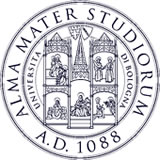
University of Bologna
The Alma Mater Studiorum - University of Bologna is the oldest continually operating university in the world, the word 'universitas' being first used by this institution at its foundation. The true date of its founding is uncertain, but believed by most accounts to have been 1088...
in 1088 or the University of Paris
University of Paris
The University of Paris was a university located in Paris, France and one of the earliest to be established in Europe. It was founded in the mid 12th century, and officially recognized as a university probably between 1160 and 1250...
(ca. 1160–70). In the 19th and 20th centuries, European universities concentrated upon science
Science
Science is a systematic enterprise that builds and organizes knowledge in the form of testable explanations and predictions about the universe...
and research
Research
Research can be defined as the scientific search for knowledge, or as any systematic investigation, to establish novel facts, solve new or existing problems, prove new ideas, or develop new theories, usually using a scientific method...
, their structures and philosophies having shaped the contemporary university
University
A university is an institution of higher education and research, which grants academic degrees in a variety of subjects. A university is an organisation that provides both undergraduate education and postgraduate education...
. The original medieval universities arose from the Roman Catholic Church schools that became “the university." Their purposes included training profession
Profession
A profession is a vocation founded upon specialized educational training, the purpose of which is to supply disinterested counsel and service to others, for a direct and definite compensation, wholly apart from expectation of other business gain....
als, scientific investigation, improving society, and teaching critical thinking and research. External influences, such as Renaissance humanism
Renaissance humanism
Renaissance humanism was an activity of cultural and educational reform engaged by scholars, writers, and civic leaders who are today known as Renaissance humanists. It developed during the fourteenth and the beginning of the fifteenth centuries, and was a response to the challenge of Mediæval...
(ca. mid-14th c.), the Age of Enlightenment
Age of Enlightenment
The Age of Enlightenment was an elite cultural movement of intellectuals in 18th century Europe that sought to mobilize the power of reason in order to reform society and advance knowledge. It promoted intellectual interchange and opposed intolerance and abuses in church and state...
(18th c.), the Protestant Reformation
Protestant Reformation
The Protestant Reformation was a 16th-century split within Western Christianity initiated by Martin Luther, John Calvin and other early Protestants. The efforts of the self-described "reformers", who objected to the doctrines, rituals and ecclesiastical structure of the Roman Catholic Church, led...
(1517), political revolution
Revolution
A revolution is a fundamental change in power or organizational structures that takes place in a relatively short period of time.Aristotle described two types of political revolution:...
, and the discovery of the New World
New World
The New World is one of the names used for the Western Hemisphere, specifically America and sometimes Oceania . The term originated in the late 15th century, when America had been recently discovered by European explorers, expanding the geographical horizon of the people of the European middle...
(1492) added human rights
Human rights
Human rights are "commonly understood as inalienable fundamental rights to which a person is inherently entitled simply because she or he is a human being." Human rights are thus conceived as universal and egalitarian . These rights may exist as natural rights or as legal rights, in both national...
and international law
International law
Public international law concerns the structure and conduct of sovereign states; analogous entities, such as the Holy See; and intergovernmental organizations. To a lesser degree, international law also may affect multinational corporations and individuals, an impact increasingly evolving beyond...
to the university curricula
Curriculum
See also Syllabus.In formal education, a curriculum is the set of courses, and their content, offered at a school or university. As an idea, curriculum stems from the Latin word for race course, referring to the course of deeds and experiences through which children grow to become mature adults...
.
By the 18th century, universities published academic journal
Academic journal
An academic journal is a peer-reviewed periodical in which scholarship relating to a particular academic discipline is published. Academic journals serve as forums for the introduction and presentation for scrutiny of new research, and the critique of existing research...
s; by the 19th century, the German and the French university models were established. The German university — the Humboldtian model — established by Wilhelm von Humboldt
Wilhelm von Humboldt
Friedrich Wilhelm Christian Karl Ferdinand Freiherr von Humboldt was a German philosopher, government functionary, diplomat, and founder of Humboldt Universität. He is especially remembered as a linguist who made important contributions to the philosophy of language and to the theory and practice...
was based upon Friedrich Schleiermacher’s liberal ideas about the importance of freedom
Free will
"To make my own decisions whether I am successful or not due to uncontrollable forces" -Troy MorrisonA pragmatic definition of free willFree will is the ability of agents to make choices free from certain kinds of constraints. The existence of free will and its exact nature and definition have long...
, seminar
Seminar
Seminar is, generally, a form of academic instruction, either at an academic institution or offered by a commercial or professional organization. It has the function of bringing together small groups for recurring meetings, focusing each time on some particular subject, in which everyone present is...
s, and laboratories
Laboratory
A laboratory is a facility that provides controlled conditions in which scientific research, experiments, and measurement may be performed. The title of laboratory is also used for certain other facilities where the processes or equipment used are similar to those in scientific laboratories...
, which, like the French university model, involved strict discipline and control of every aspect of the university. In the 19th and 20th centuries, the universities concentrated upon science, but were not open to the general populace until after 1914. Moreover, until the 19th century’s end, religion
Religion
Religion is a collection of cultural systems, belief systems, and worldviews that establishes symbols that relate humanity to spirituality and, sometimes, to moral values. Many religions have narratives, symbols, traditions and sacred histories that are intended to give meaning to life or to...
exerted a significant, limiting influence upon academic
Academy
An academy is an institution of higher learning, research, or honorary membership.The name traces back to Plato's school of philosophy, founded approximately 385 BC at Akademia, a sanctuary of Athena, the goddess of wisdom and skill, north of Athens, Greece. In the western world academia is the...
curricula and research
Scholarly method
Scholarly method or scholarship is the body of principles and practices used by scholars to make their claims about the world as valid and trustworthy as possible, and to make them known to the scholarly public.-Methods:...
, by when the German university model had become the world standard. Elsewhere, the British also had established universities world-wide, thus making higher education
Higher education
Higher, post-secondary, tertiary, or third level education refers to the stage of learning that occurs at universities, academies, colleges, seminaries, and institutes of technology...
available to the world’s populaces.
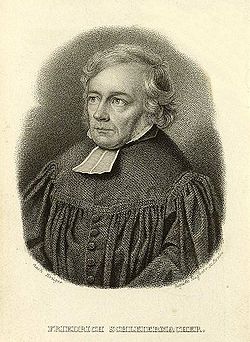
The first European universities
Historically, the University of BolognaUniversity of Bologna
The Alma Mater Studiorum - University of Bologna is the oldest continually operating university in the world, the word 'universitas' being first used by this institution at its foundation. The true date of its founding is uncertain, but believed by most accounts to have been 1088...
, founded in 1088, is considered the “mother of European universities” — established as symbolic of Italian national unity, which detracts legitimacy from its claim as the first university proper. Said contention is challenged by the definition of “university
University
A university is an institution of higher education and research, which grants academic degrees in a variety of subjects. A university is an organisation that provides both undergraduate education and postgraduate education...
” as a single, corporate body composed of students and faculties of the disciplines taught, rather than as a corporate body such as the University of Paris
University of Paris
The University of Paris was a university located in Paris, France and one of the earliest to be established in Europe. It was founded in the mid 12th century, and officially recognized as a university probably between 1160 and 1250...
, founded in 1208, that might be considered the first university.
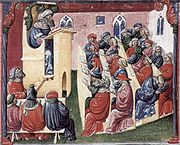
Profession
A profession is a vocation founded upon specialized educational training, the purpose of which is to supply disinterested counsel and service to others, for a direct and definite compensation, wholly apart from expectation of other business gain....
. Prof. Walter Rüegg, editor of A History of the University in Europe, reports that universities then only trained students to become clerics, lawyers, civil servants, and physicians. Yet rediscovery of Classical-era knowledge transformed the university from the practical arts to developing “knowledge for the sake of knowledge”, which, by the 16th century, was considered integral to the civil community’s practical requirements. Hence, academic research was effected in furtherance of scientific investigation, because science had become essential to university curricula via “openness to novelty” in the search for the means to control nature to benefit civil society.
The structure and spread of early European universities
The European University proliferated in part because groups decided to secede from the original universities to promote their own ideals; the University of ParisUniversity of Paris
The University of Paris was a university located in Paris, France and one of the earliest to be established in Europe. It was founded in the mid 12th century, and officially recognized as a university probably between 1160 and 1250...
fostered many universities in Northern Europe, while the University of Bologna fostered many in the South. Some leaders also created universities in order to use them to increase their political power and popularity. For example, Frederick II, Holy Roman Emperor
Frederick II, Holy Roman Emperor
Frederick II , was one of the most powerful Holy Roman Emperors of the Middle Ages and head of the House of Hohenstaufen. His political and cultural ambitions, based in Sicily and stretching through Italy to Germany, and even to Jerusalem, were enormous...
founded the University of Naples in 1224 to train lawyers and administrators who could rival the University of Bologna's influence, which served the hostile Lombard League
Lombard League
The Lombard League was an alliance formed around 1167, which at its apex included most of the cities of northern Italy , including, among others, Crema, Cremona, Mantua, Piacenza, Bergamo, Brescia, Milan, Genoa, Bologna, Padua, Modena, Reggio Emilia, Treviso, Venice, Vercelli, Vicenza, Verona,...
.
The structure of these early classes involved a master reading from texts and commenting on the readings, as well as students learning by teaching other students. Masters also offered disputed questions to their classes for discussion. Moving into the 18th century, professors became less focused on simply training university teachers and more focused on “forming the minds of the elite” of a larger society.
Philosophic and external influences
By the 16th century, the humanist ideas of the RenaissanceRenaissance
The Renaissance was a cultural movement that spanned roughly the 14th to the 17th century, beginning in Italy in the Late Middle Ages and later spreading to the rest of Europe. The term is also used more loosely to refer to the historical era, but since the changes of the Renaissance were not...
(14th–16th c.) were slowly accepted; France had propagated them first to Germany, then to England, during the Protestant Reformation
Protestant Reformation
The Protestant Reformation was a 16th-century split within Western Christianity initiated by Martin Luther, John Calvin and other early Protestants. The efforts of the self-described "reformers", who objected to the doctrines, rituals and ecclesiastical structure of the Roman Catholic Church, led...
(1617). In that intellectual humanist mode, university education began including preparing the student for a civilized life — of culture and civility — and concern for society’s public affairs. To achieve that, the curriculum comprised the liberal arts Trivium (grammar
Grammar
In linguistics, grammar is the set of structural rules that govern the composition of clauses, phrases, and words in any given natural language. The term refers also to the study of such rules, and this field includes morphology, syntax, and phonology, often complemented by phonetics, semantics,...
, rhetoric
Rhetoric
Rhetoric is the art of discourse, an art that aims to improve the facility of speakers or writers who attempt to inform, persuade, or motivate particular audiences in specific situations. As a subject of formal study and a productive civic practice, rhetoric has played a central role in the Western...
, logic
Logic
In philosophy, Logic is the formal systematic study of the principles of valid inference and correct reasoning. Logic is used in most intellectual activities, but is studied primarily in the disciplines of philosophy, mathematics, semantics, and computer science...
), and the Quadrivium
Quadrivium
The quadrivium comprised the four subjects, or arts, taught in medieval universities, after teaching the trivium. The word is Latin, meaning "the four ways" , and its use for the 4 subjects has been attributed to Boethius or Cassiodorus in the 6th century...
(arithmetic
Arithmetic
Arithmetic or arithmetics is the oldest and most elementary branch of mathematics, used by almost everyone, for tasks ranging from simple day-to-day counting to advanced science and business calculations. It involves the study of quantity, especially as the result of combining numbers...
, geometry
Geometry
Geometry arose as the field of knowledge dealing with spatial relationships. Geometry was one of the two fields of pre-modern mathematics, the other being the study of numbers ....
, astronomy
Astronomy
Astronomy is a natural science that deals with the study of celestial objects and phenomena that originate outside the atmosphere of Earth...
, music
Music
Music is an art form whose medium is sound and silence. Its common elements are pitch , rhythm , dynamics, and the sonic qualities of timbre and texture...
) meant to prepare students for further specialized education in either theology
Theology
Theology is the systematic and rational study of religion and its influences and of the nature of religious truths, or the learned profession acquired by completing specialized training in religious studies, usually at a university or school of divinity or seminary.-Definition:Augustine of Hippo...
, the law
Law
Law is a system of rules and guidelines which are enforced through social institutions to govern behavior, wherever possible. It shapes politics, economics and society in numerous ways and serves as a social mediator of relations between people. Contract law regulates everything from buying a bus...
, or medicine
Medicine
Medicine is the science and art of healing. It encompasses a variety of health care practices evolved to maintain and restore health by the prevention and treatment of illness....
. In 1492, the socio-political consequences of the discovery of the New World expanded European university curricula, as human rights
Human rights
Human rights are "commonly understood as inalienable fundamental rights to which a person is inherently entitled simply because she or he is a human being." Human rights are thus conceived as universal and egalitarian . These rights may exist as natural rights or as legal rights, in both national...
and international law
International law
Public international law concerns the structure and conduct of sovereign states; analogous entities, such as the Holy See; and intergovernmental organizations. To a lesser degree, international law also may affect multinational corporations and individuals, an impact increasingly evolving beyond...
became contemporarily relevant matters. The Spanish enslavement of the native (aboriginal) populaces they conquered in the “New World” of the Americas eventually raised ethico-moral questions in Europe about the human rights of the American aboriginals — questions of cultural tolerance evinced by Renaissance
Renaissance
The Renaissance was a cultural movement that spanned roughly the 14th to the 17th century, beginning in Italy in the Late Middle Ages and later spreading to the rest of Europe. The term is also used more loosely to refer to the historical era, but since the changes of the Renaissance were not...
humanism
Humanism
Humanism is an approach in study, philosophy, world view or practice that focuses on human values and concerns. In philosophy and social science, humanism is a perspective which affirms some notion of human nature, and is contrasted with anti-humanism....
, the Bible, and mediæval theories of natural law. In analogy to the ancient world’s works, Rüegg relates the “New World” idea to the idea of “new knowledge”. In the mid-16th century, scholarly and scientific journals made it feasible to “spread innovations among the learned”; by the 18th century, universities published their own research journals. In the 18th century, the Age of Enlightenment
Age of Enlightenment
The Age of Enlightenment was an elite cultural movement of intellectuals in 18th century Europe that sought to mobilize the power of reason in order to reform society and advance knowledge. It promoted intellectual interchange and opposed intolerance and abuses in church and state...
also encouraged education’s transition, from the “preservation and transmission of accepted knowledge” to the “discovery and advancement of new knowledge”; the newer universities effected that change more quickly, and adapted Enlightenment ideas about the harmfulness of monarchic Absolutism
Absolutism (European history)
Absolutism or The Age of Absolutism is a historiographical term used to describe a form of monarchical power that is unrestrained by all other institutions, such as churches, legislatures, or social elites...
more readily than did the older universities.
Modern universities

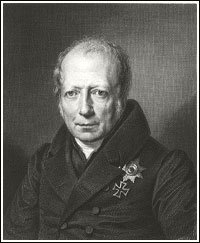
University College London
University College London is a public research university located in London, United Kingdom and the oldest and largest constituent college of the federal University of London...
and King's College London. Such free thinking and experimentation had notably already begun in Britain's oldest universities beginning in the seventeenth century at Oxford with the fathers of British scientific methodology Robert Hooke
Robert Hooke
Robert Hooke FRS was an English natural philosopher, architect and polymath.His adult life comprised three distinct periods: as a scientific inquirer lacking money; achieving great wealth and standing through his reputation for hard work and scrupulous honesty following the great fire of 1666, but...
and Robert Boyle
Robert Boyle
Robert Boyle FRS was a 17th century natural philosopher, chemist, physicist, and inventor, also noted for his writings in theology. He has been variously described as English, Irish, or Anglo-Irish, his father having come to Ireland from England during the time of the English plantations of...
, and at Cambridge where Isaac Newton
Isaac Newton
Sir Isaac Newton PRS was an English physicist, mathematician, astronomer, natural philosopher, alchemist, and theologian, who has been "considered by many to be the greatest and most influential scientist who ever lived."...
was Lucasian Proefessor of Mathematics & Physics. The dawn of the Age of Enlightenment
Age of Enlightenment
The Age of Enlightenment was an elite cultural movement of intellectuals in 18th century Europe that sought to mobilize the power of reason in order to reform society and advance knowledge. It promoted intellectual interchange and opposed intolerance and abuses in church and state...
and decline of classical medieval Scholasticism
Scholasticism
Scholasticism is a method of critical thought which dominated teaching by the academics of medieval universities in Europe from about 1100–1500, and a program of employing that method in articulating and defending orthodoxy in an increasingly pluralistic context...
across Europe, as in Russia, made fertile ground for the German organizational approach as a consequence. The German model, conceived by Wilhelm von Humboldt
Wilhelm von Humboldt
Friedrich Wilhelm Christian Karl Ferdinand Freiherr von Humboldt was a German philosopher, government functionary, diplomat, and founder of Humboldt Universität. He is especially remembered as a linguist who made important contributions to the philosophy of language and to the theory and practice...
, was also known as the Humboldtian model. In 1810, Humboldt convinced the King of Prussia to build a university in Berlin based on Friedrich Schleiermacher’s liberal ideas; the goal was to demonstrate the process of the discovery of knowledge and to teach students to “take account of fundamental laws of science in all their thinking.” Thus, seminars and laboratories started to evolve. Humboldt envisioned the university education as a student-centered activity of research:
Just as primary instruction makes the teacher possible, so he renders himself dispensable through schooling at the secondary level. The university teacher is thus no longer a teacher and the student is no longer a pupil. Instead the student conducts research on his own behalf and the professor supervises his research and supports him in it.
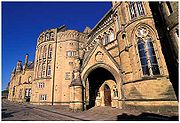
The French University model lacked the freedom of the German model, consisting of severe discipline and control over the curriculum, awarding of degrees, conformity of views, and personal habits (for example, there was a ban on beards in 1852). French university professors trained at the École Normale Supérieure
École Normale Supérieure
The École normale supérieure is one of the most prestigious French grandes écoles...
, and much of their prestige depended on their schools’ reputations. By 1866, though, the German model had begun to influence the strict French model.
The German university model was also used in Russian universities, which hired lecturers trained in Germany and which dedicated themselves to science. At the same time, Russian universities were meant to train the bureaucracy in the same way as the French grandes écoles
Grandes écoles
The grandes écoles of France are higher education establishments outside the main framework of the French university system. The grandes écoles select students for admission based chiefly on national ranking in competitive written and oral exams...
. Throughout the 19th and 20th centuries, Russian universities underwent much variation in their degrees of strictness and control.
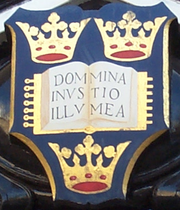
Autonomy
Autonomy is a concept found in moral, political and bioethical philosophy. Within these contexts, it is the capacity of a rational individual to make an informed, un-coerced decision...
the changes there had begun with the Age of Enlightenment
Age of Enlightenment
The Age of Enlightenment was an elite cultural movement of intellectuals in 18th century Europe that sought to mobilize the power of reason in order to reform society and advance knowledge. It promoted intellectual interchange and opposed intolerance and abuses in church and state...
, the same influences that inspired Humboldt. The Universities of Oxford
University of Oxford
The University of Oxford is a university located in Oxford, United Kingdom. It is the second-oldest surviving university in the world and the oldest in the English-speaking world. Although its exact date of foundation is unclear, there is evidence of teaching as far back as 1096...
and Cambridge
University of Cambridge
The University of Cambridge is a public research university located in Cambridge, United Kingdom. It is the second-oldest university in both the United Kingdom and the English-speaking world , and the seventh-oldest globally...
emphasized the importance of research
Research
Research can be defined as the scientific search for knowledge, or as any systematic investigation, to establish novel facts, solve new or existing problems, prove new ideas, or develop new theories, usually using a scientific method...
, arguably more authentically implementing Humboldt’s idea of a university than even German universities, which were subject to state authority.
Overall, science became the focus of universities in the 19th and 20th centuries. Students could conduct research in seminars or laboratories and began to produce doctoral theses with more scientific content. According to Humboldt, the mission of the University of Berlin was to pursue scientific knowledge. The German university system fostered professional, bureaucratically regulated scientific research performed in well-equipped laboratories, instead of the kind of research done by private and individual scholars in Great Britain and France. In fact, Rüegg asserts that the German system is responsible for the development of the modern research university because it focused on the idea of “freedom of scientific research, teaching and study.”
Professors and Students
Schleiermacher posits that professors, had to “reproduce [their] own realization[s]” so that students could observe the “act of creation” of knowledge. That they serve as models of how to “intelligently produce knowledge”. Professorship was awarded to distinguished scholars, and was rescindable only if guilty of a serious crime. From the perspective of James McCain, president emeritus of Kansas State University, professors in 20th century Europe were more prestigious and well-respected than university professors in the US, for having much academic freedom, whilst keeping to formal relationships with the students. Moreover, the professors’ professional role expanded from lecturing to investigating, thus research became “an integral part of the professor’s task”.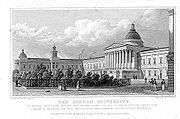
Higher education
Higher, post-secondary, tertiary, or third level education refers to the stage of learning that occurs at universities, academies, colleges, seminaries, and institutes of technology...
slowly began after 1914, yet the principal remaining obstacle was its expense. For most of the 19th century, the UK continued affording a university education only to aristocrats
Aristocracy
Aristocracy , is a form of government in which a few elite citizens rule. The term derives from the Greek aristokratia, meaning "rule of the best". In origin in Ancient Greece, it was conceived of as rule by the best qualified citizens, and contrasted with monarchy...
, and not until the early 20th century, featuring new universities, such as the University of London
University of London
-20th century:Shortly after 6 Burlington Gardens was vacated, the University went through a period of rapid expansion. Bedford College, Royal Holloway and the London School of Economics all joined in 1900, Regent's Park College, which had affiliated in 1841 became an official divinity school of the...
, was higher education available to the mass populace. Moreover, it was not until the mid-19th century that universities admitted women students, who confronted great difficulties, such as having no civil rights and societal-institutional sexism
Sexism
Sexism, also known as gender discrimination or sex discrimination, is the application of the belief or attitude that there are characteristics implicit to one's gender that indirectly affect one's abilities in unrelated areas...
doubting their intellectual capacities and their right
Rights
Rights are legal, social, or ethical principles of freedom or entitlement; that is, rights are the fundamental normative rules about what is allowed of people or owed to people, according to some legal system, social convention, or ethical theory...
to participate in a university education. In the event, the entrance of common students to the universities challenged the ideology
Ideology
An ideology is a set of ideas that constitutes one's goals, expectations, and actions. An ideology can be thought of as a comprehensive vision, as a way of looking at things , as in common sense and several philosophical tendencies , or a set of ideas proposed by the dominant class of a society to...
of the German model, because their varied middle- and working-class backgrounds, hence different expectations, resulted in a less concretely Humboldtian university.
In the 19th and 20th centuries, European university students were mostly responsible for their educations; they selected courses of study, professors did not register attendance, and only gave examinations
Final examination
A final examination is a test given to students at the end of a course of study or training. Although the term can be used in the context of physical training, it most often occurs in the academic world...
at course’s end. Rüegg suggests that student propensity to developing student movements, based upon contemporary politics, parallels their attitudes of intellectual freedom and social responsibility.
Progressive educational and political philosophies changed religion
Religion
Religion is a collection of cultural systems, belief systems, and worldviews that establishes symbols that relate humanity to spirituality and, sometimes, to moral values. Many religions have narratives, symbols, traditions and sacred histories that are intended to give meaning to life or to...
’s role in the education imparted. During the 18th century, most universities were strongly connected to either a Catholic or a Protestant church, thus the professors’ and the students’ religion determined employment and matriculation. In the 19th century, religion was deleted from the “compulsory curriculum”; in France, Napoleon’s secular
Secularism
Secularism is the principle of separation between government institutions and the persons mandated to represent the State from religious institutions and religious dignitaries...
Université de France
University of France
The University of France was a highly centralized educational state organization founded by Napoleon I in 1808 and given authority not only over the individual, previously independent, universities, but also over primary and secondary education. The former individual universities were henceforth...
troubled Roman Catholics, because it threatened their educational monopoly. To wit, the Loi Falloux (Falloux Law) of 1850 attempted to reinstate some educational power to the Roman Catholic Church, but, by then, the Université de France had de facto substantive control of French higher education. Like-wise, in the UK, the new universities (i.e. the University of London
University of London
-20th century:Shortly after 6 Burlington Gardens was vacated, the University went through a period of rapid expansion. Bedford College, Royal Holloway and the London School of Economics all joined in 1900, Regent's Park College, which had affiliated in 1841 became an official divinity school of the...
), were non-denominational, and the Oxford Act of 1854 rid Oxford and Cambridge universities of required religion with a concomitant decline in chapel attendance, and of religion as integral to a university education.
The European university legacy
Ultimately, European research universities established the intellectual and academic traditions of university education world-wide; by the 19th century’s end, the Humboldtian university model was established in Europe, the US, and Japan. In the Americas, first the Spanish, then the British, and then the French founded universities in the lands they had conquered early in the 16th century, meant to professionally educate their colonists and propagate monotheisticMonotheism
Monotheism is the belief in the existence of one and only one god. Monotheism is characteristic of the Baha'i Faith, Christianity, Druzism, Hinduism, Islam, Judaism, Samaritanism, Sikhism and Zoroastrianism.While they profess the existence of only one deity, monotheistic religions may still...
religion
Religion
Religion is a collection of cultural systems, belief systems, and worldviews that establishes symbols that relate humanity to spirituality and, sometimes, to moral values. Many religions have narratives, symbols, traditions and sacred histories that are intended to give meaning to life or to...
to establish formal, administrative rule of their American colonies; like-wise, the British in Canada
Canada
Canada is a North American country consisting of ten provinces and three territories. Located in the northern part of the continent, it extends from the Atlantic Ocean in the east to the Pacific Ocean in the west, and northward into the Arctic Ocean...
, Australia
Australia
Australia , officially the Commonwealth of Australia, is a country in the Southern Hemisphere comprising the mainland of the Australian continent, the island of Tasmania, and numerous smaller islands in the Indian and Pacific Oceans. It is the world's sixth-largest country by total area...
, and the Cape Colony
Cape Colony
The Cape Colony, part of modern South Africa, was established by the Dutch East India Company in 1652, with the founding of Cape Town. It was subsequently occupied by the British in 1795 when the Netherlands were occupied by revolutionary France, so that the French revolutionaries could not take...
; and like-wise Japan, the Near East
Near East
The Near East is a geographical term that covers different countries for geographers, archeologists, and historians, on the one hand, and for political scientists, economists, and journalists, on the other...
, and Africa
Africa
Africa is the world's second largest and second most populous continent, after Asia. At about 30.2 million km² including adjacent islands, it covers 6% of the Earth's total surface area and 20.4% of the total land area...
. Those universities disseminated Western European science
Science
Science is a systematic enterprise that builds and organizes knowledge in the form of testable explanations and predictions about the universe...
and technology
Technology
Technology is the making, usage, and knowledge of tools, machines, techniques, crafts, systems or methods of organization in order to solve a problem or perform a specific function. It can also refer to the collection of such tools, machinery, and procedures. The word technology comes ;...
and trained the natives to develop their countries resources; and, although most promoted the social, political, economic, and cultural aims of the imperial rulers, some promoted revolutionary
Revolution
A revolution is a fundamental change in power or organizational structures that takes place in a relatively short period of time.Aristotle described two types of political revolution:...
development of the colonial societies. In the 20th century, urbanization
Urbanization
Urbanization, urbanisation or urban drift is the physical growth of urban areas as a result of global change. The United Nations projected that half of the world's population would live in urban areas at the end of 2008....
and industrialization made a university education available to the mass populace. Throughout, the basic structure and research purposes of the universities have remained constant; per Clark Kerr, they “are among the least changed of institutions”.
See also
- History of educationHistory of educationThe history of education its part of the past and present teaching and learning. Each generation, since the beginning of human existence, has sought to pass on cultural and social values, traditions, morality, religion and skills to the next generation. The passing on of culture is also known as...
- History of EuropeHistory of EuropeHistory of Europe describes the history of humans inhabiting the European continent since it was first populated in prehistoric times to present, with the first human settlement between 45,000 and 25,000 BC.-Overview:...
- UniversityUniversityA university is an institution of higher education and research, which grants academic degrees in a variety of subjects. A university is an organisation that provides both undergraduate education and postgraduate education...
- Redbrick Universities

